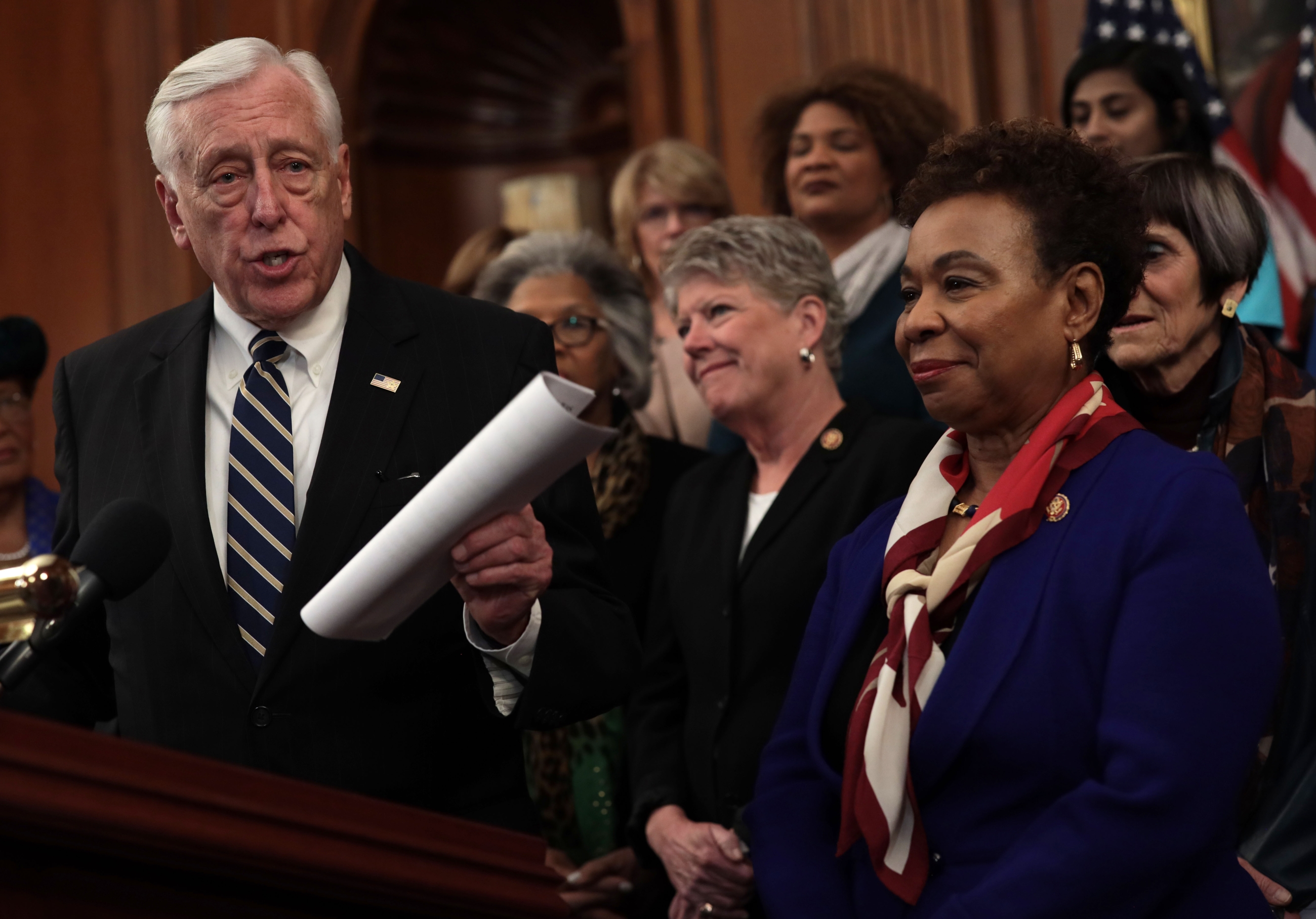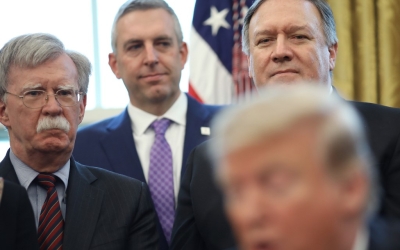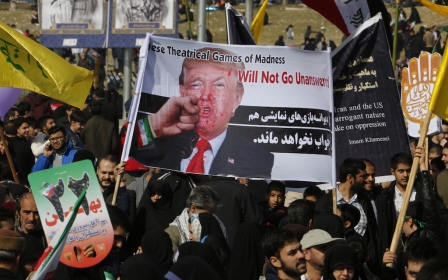US lawmakers seek to block Trump from unilaterally declaring war on Iran

US lawmakers have taken the first concrete step to block Donald Trump from invoking a law that allows US presidents to unilaterally declare war, a move they say is critical amid heightened tensions with Iran.
Democratic Congresswoman Barbara Lee has pushed for a repeal of the Authorization for Use of Military Force (AUMF), a 2001 law passed shortly after 9/11 that gave the US president the power to declare war without congressional approval.
On Wednesday, she said the AUMF must go because increasingly hostile rhetoric between the Trump administration and Iran "is taking place without congressional debate and without a constitutionally required authorisation for the use of military force".
"It is clear that the Trump administration is trying to find ways to provoke us into a war with Iran by casting Iran as a terrorist threat to the United States," she wrote in a column in the San Francisco Chronicle.
'We have seen this playbook before - the 2003 launch of the war in Iraq was based on a fabricated pretext for war. We cannot afford to make the same mistake again'
- Congresswoman Barbara Lee
A day earlier, the House Appropriations Committee passed an amendment to the Defense Appropriations Act, the annual defence spending bill, in a 30-22 vote along party lines.
That amendment acts as a sunset clause, giving the AUMF eight months before it will expire.
"The 2001 AUMF has been used as a blank check for endless war by three Administrations," Lee said in a press release after the vote.
"As the Trump Administration escalates tensions with Iran, it is more important than ever for Congress to reassert its constitutional authority.
"We must start by repealing the overly broad 2001 AUMF and do our job to debate and vote on any replacement," she added.
'Unnecessary and endless wars'
While the amendment has not yet become law - and it must clear several hurdles in Congress before coming into effect - it nonetheless signals a break between US lawmakers from both major parties and the Trump administration.
Many Democrats have raised concerns over the recent hostile rhetoric between senior members of the Trump administration and Iran, as experts and other observers urged both countries to exercise caution to avoid a military conflict.
On Wednesday, a cadre of Democratic lawmakers rallied in support of the amendment, saying that the AUMF has outlived its purpose.
"The American people have already suffered through too many unnecessary and endless wars," said Jerry McNerney, a Democrat from California.
.@Call_Me_Dutch is right—it’s long past time for Congress to repeal the overly broad 2001 AUMF. #StopEndlessWar pic.twitter.com/ORHqopESh5
— Rep. Barbara Lee (@RepBarbaraLee) May 22, 2019
The criticism comes as tensions have escalated between Tehran and Washington, which accused the Iranian government of posing a threat to American forces in the region.
While American and Iranian leaders have sought in recent days to dispel the idea that the two countries are headed for war, senior members of the Trump administration are believed to be gunning for a direct confrontation.
Despite this, Republican lawmakers blasted the Democrats' effort to kill the AUMF.
"This fight is so critical to our national security that it would be utterly irresponsible and dangerous to repeal the 2001 AUMF until we replace it," said Republican Ken Calvert, also from California.
That was echoed by Kay Granger, a Republican congresswoman from Texas.
"I can think of few things more dangerous and ill-conceived than removing a fundamental underpinning for US military operations without having consensus agreement on what is to replace it," she also said, as reported by The Hill.
The AUMF
The US Congress passed the AUMF days after the 9/11 attacks in 2001, granting the US president the authority to use military force against the Taliban and al-Qaeda in Afghanistan without congressional approval.
The law granted the president the authority "to use all necessary and appropriate force" against anyone Washington said was involved in the attacks - or harbours any group or actor it said was involved.
But the legislation has been expanded in scope several times since 2001, and a second AUMF passed in 2002 was used to justify the US invasion of Iraq a year later.
Former US President Barack Obama also invoked the AUMF to carry out drone strikes against militant groups in Yemen, Syria, Somalia and elsewhere.
Experts have expressed concern about the AUMF's reach, saying the legislation can be used to justify any sort of US military incursion.
"The associated forces doctrine has raised concerns that the 2001 AUMF is too elastic, allowing mission creep to potentially drag the US into a 'Forever War' against entities that arguably pose little or no direct threat to US national security," the Center for Ethics and the Rule of Law at the University of Pennsylvania said in a policy paper in April 2018.
Amid the recent tensions between the US and Iran, high-ranking officials in the Trump administration, including National Security Adviser John Bolton and US Secretary of State Mike Pompeo, have hinted at using the AUMF once again.
In fact, in a Senate Foreign Affairs Committee testimony last month, Pompeo did not rule out the possibility of using the mechanism to invoke war with Iran. "I would prefer just to leave that to lawyers," he said.
Last month, shortly before tensions increased between Washington and Tehran, a bipartisan group of US senators introduced legislation that would prohibit the Trump administration from unilaterally attacking Iran without Congress's approval.
The bill, called the Prevention of Unconstitutional War with Iran Act of 2019, states that "no funds may be used for kinetic military operations in or against Iran" without approval from Congress.
Lee, meanwhile, expressed fear that the US may make the same mistake it did in 2003 in Iraq, and go to war on false pretences.
"We have seen this playbook before - the 2003 launch of the war in Iraq was based on a fabricated pretext for war," she wrote in her column on Wednesday. "We cannot afford to make the same mistake again."
Middle East Eye propose une couverture et une analyse indépendantes et incomparables du Moyen-Orient, de l’Afrique du Nord et d’autres régions du monde. Pour en savoir plus sur la reprise de ce contenu et les frais qui s’appliquent, veuillez remplir ce formulaire [en anglais]. Pour en savoir plus sur MEE, cliquez ici [en anglais].





